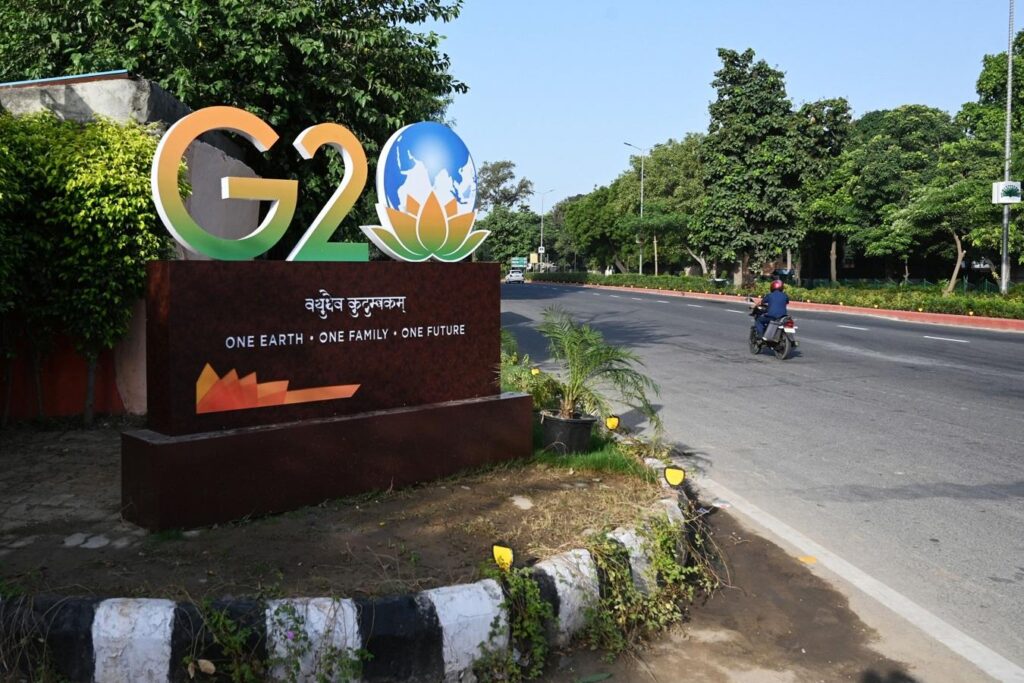The statement reflected a relatively optimistic view of the global economy, which has struggled in recent years to overcome the effects of the pandemic, high inflation and sharply rising interest rates.
) The International Monetary Fund last month raised its forecast for global growth in 2024 to 3.1%, citing better-than-expected U.S. economic growth and financial support from China. Photo: Bloomberg Bloomberg
The International Monetary Fund last month raised its forecast for global growth in 2024 to 3.1%, citing better-than-expected U.S. economic growth and financial support from China. Photo: Bloomberg Bloomberg
Manuela Tobias
In a draft closing statement from the G20 summit in Brazil this week, finance ministers said the global economy was increasingly likely to achieve a soft landing and cited faster-than-expected deflation as one upside risk.
Click here to connect with us on WhatsApp
“We see an increased likelihood of a soft landing for the global economy,” the draft statement, dated Feb. 23 and seen by Bloomberg News, said. “Risks to the global economic outlook are more balanced. Upside risks include a faster-than-expected de-inflation.”
The document is not yet final and its wording will be intensively negotiated in Sao Paulo before finance ministers arrive on Wednesday. The G20 meeting has already seen sharp divisions, particularly over the wars in Ukraine and Gaza that have rocked global politics. The draft mentions “conflicts in many parts of the world” as a challenge, but does not name any specific regions. It also lists “geopolitical tensions.”
The statement reflected a relatively optimistic view of the global economy, which has struggled in recent years to overcome the effects of the pandemic, high inflation and sharply rising interest rates.
“Inflation has fallen in most countries, due in part to appropriate monetary policies, easing of supply chain bottlenecks and stabilizing commodity prices,” the G20 draft said, but warned there remained a risk that “a reversal in inflation could lead to persistent tightening of financing conditions.”
Supported by America
The International Monetary Fund last month raised its forecast for global growth in 2024 to 3.1 percent, citing stronger-than-expected U.S. economic expansion and fiscal support from China.
Treasury Secretary Janet Yellen underscored the U.S. role, saying at a news conference in Sao Paulo on Tuesday that “the U.S. path to a soft landing has supported global economic growth.”
Yellen acknowledged risks to the outlook, including rising commodity prices and supply chain disruptions due to protracted conflicts in Ukraine and the Middle East, and debt problems plaguing low-income countries. “Inflation is declining in many countries,” she noted, but stopped short of suggesting that lowering interest rates might be appropriate.
One area where G20 officials are struggling is how to portray military conflicts like Russia’s invasion of Ukraine, which also has damaging effects on the global economy. The group includes Russia and China as well as the United States and its Western allies. A day-long debate at a preparatory meeting on Monday ensued over how to portray the economic effects and risks of war.
Ministers are expected to try to bracket some contentious topics so as not to overwhelm others. Brazil, which is hosting the conference at Sao Paulo’s iconic biennial center surrounded by lush parks, is pushing an agenda that includes poverty, sustainable development and reform of international institutions.
It is unclear how much of this agenda will be realised at the meeting, given the wide range of disagreements. The final communique typically sees ministers laying out a consensus view on the global economy and the challenges ahead.



